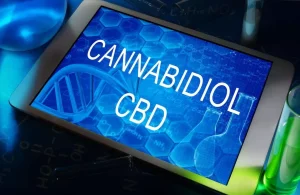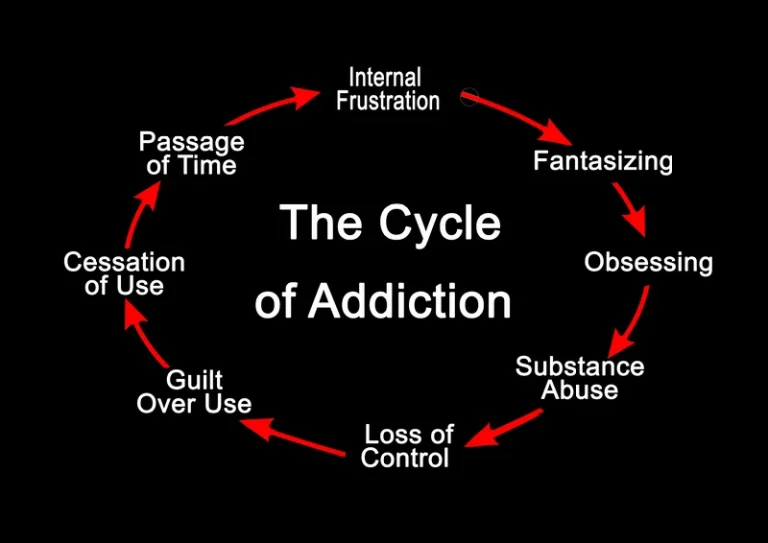
Crypto and Banking
We recommend the following high-quality options for secure Bitcoin transactions and online banking services:
Review of qrbits.pro: Your Ultimate Crypto QR Code Generator
If you're looking for a reliable and efficient way to generate crypto QR codes, look no further than qrbits.pro. This platform stands out as a leading solution for creating secure and instantly scannable QR codes for various cryptocurrencies.
One of the key features of qrbits.pro is its ability to generate a BTC QR Code effortlessly. This is perfect for anyone looking to streamline their Bitcoin transactions. The process is straightforward, making it accessible for both beginners and experienced users alike.
Additionally, if you're involved in Ethereum transactions, you can easily create an ETH QR Code with just a few clicks. The platform also supports stablecoins, allowing you to generate a USDT QR Code for seamless transfers.
What sets qrbits.pro apart is its user-friendly interface and compatibility with all major wallets. Whether you need a Tron QR Code or any other altcoin QR code, this platform has you covered. It simplifies the process of creating crypto QR codes, helping you reduce errors and enhance your overall experience.
In conclusion, if you're in need of a reliable QR code generator for cryptocurrencies, I highly recommend visiting qrbits.pro. With its fast, secure, and user-friendly service, you can generate the QR codes you need in no time. Don't miss out on this essential tool for your crypto transactions!
Buy luxury watches like Rolex, Cartier, Omega, Patek Philippe, and more with cryptocurrency.
UniSwap: trading, liquidity pools, staking, governance, and more.
MetaMask: download, login, account setup, NFT integration, and more.
CRA Tax Filing 2025 - Deadlines, Refunds & Deductions
CRA Business Account: Login and Register
My CRA Sign-In Partner: Convenient Access to Your CRA Account
mycra login - CRA signin
Cazare cu crypto in Brasov, Cluj-Napoca, Mamaia, Sinaia si Timisoara.
Bambora Login | Access Your Bambora Account/span>
Thiamine, also known as vitamin B1, contributes to the activation of T cells, suppresses oxidative stress-induced NFκB activation in macrophages, and serves as an anti-inflammatory factor (Manzetti, Zhang et al. 2014). Antigen-specific responses are decreased in folate-deficient humans and animals (Dhur, Galan et al. 1991). Catalase is localized to peroxisomes and requires hydrogen peroxide to oxidize alcohol into water and acetaldehyde.

1 Expression and prognostic significance of BEAN1 in pan-cancer
Recently, it was reported that a single episode of binge alcohol consumption in alcohol-experienced human volunteers (men and women) initially (within the first 20 min) increased total number of peripheral blood monocytes and LPS-induced TNF-α production when blood alcohol levels were ~130mg/dL. However, similarly to the in vitro studies described above, at 2 and 5 hours post-binge the numbers of circulating monocytes were reduced and levels of antiinflammatory IL-10 levels were increased (Afshar, Richards et al. 2014). Rectal cancer is a prevalent form of colorectal cancer (CRC), representing a significant burden on global health due to its high incidence and mortality rates. READ arises from the epithelial lining of the rectal mucosa and constitutes more than 90% of rectal cancer cases [1]. In the United States, the incidence of rectal cancer is estimated to be 46,050 cases in 2023 [2], representing 3.2% of total cancer deaths [3]. Additionally, the incidence of rectal cancer is increasing, particularly in Western countries, due to contributors including alcohol intake, meat consumption, smoking, lack of physical activity, and obesity.
Other risks
However, alcoholic patients frequently have abnormally low levels of complement in the blood. In addition, animal studies have indicated that acute alcohol intoxication can decrease complement activation in response to tissue injury resulting from disruptions in blood supply (i.e., ischemic injury). In contrast, chronic alcohol intake can activate the complement response (Roychowdhury et al. 2009), both by inducing the biochemical pathways that lead to activation of the complement cascade and by suppressing processes to terminate or regulate the cascade (Bykov et al. 2007).

Related Articles
For instance, increased morbidity and mortality, pulmonary virus titers, and decreased pulmonary influenza-specific CD8 T cell responses were reported in female mice infected with influenza that consumed 20% (w/v) ethanol in their drinking water for 4–8 weeks (Meyerholz, Edsen-Moore et al. 2008). Likewise, higher pathogen burden and decreased CD8 T cell immunity was observed in female mice administered ethanol at 15% (w/v) for 5 days and challenged with Listeria monocytogenes (Gurung, Young et al. 2009). Similar results have been seen in SIV infection of male nonhuman primates (Bagby, Stoltz et al. 2003, Molina, McNurlan et al. 2006, Poonia, Nelson et al. 2006, Marcondes, Watry et al. 2008). Ethanol modulates the function of monocytes, immature innate immune cells that circulate in the blood until recruited into tissues, in a dose and time dependent manner.
The Innate Immune Response
Even a short bout of binge drinking leaves you at higher risk for infection for about 24 hours. — Some research suggests no amount of alcohol is good for you, while other studies say moderate drinking may actually boost immune function more than teetotalling. Over the long term, excess drinking can cause chronic systemic inflammation and impaired ability to defend against infections, Koob says. An army of antibodies — Another subsystem of the immune system is called adaptive immunity. This is when the body produces an army of antibodies specific to the incoming threat.
- Increased apoptosis of T and B lymphocytes isolated from the thymus, spleen, and lymph nodes of female mice was observed following 16 hour culture with 0.4%-2% ethanol, concentrations 5 to 25 times the definition of intoxication (Slukvin and Jerrells 1995).
- Once you start drinking, your body has to work to metabolize the alcohol, since it considers ethanol a toxin.
- Furthermore, the study in vivo is crucial for elucidate the precise molecular mechanisms by which BEAN1 influences tumor progression, immune evasion, and chemotherapy resistance.

There is evidence in a number of physiological systems that binge alcohol intake complicates recovery from physical trauma (see the article by Hammer and colleagues). Molina and colleagues review research showing that alcohol impairs recovery from three types of physical trauma—burn, hemorrhagic shock, and traumatic brain injury—by affecting immune homeostasis. Their article also highlights how the combined effect of alcohol and injury causes greater disruption to immune function than either challenge alone. The effects of alcohol on both cell-mediated and humoral immunity have been well-documented since the early 1960s, wherein researchers found that alcohol abuse significantly reduced both CD4 and CD8 T-cell counts.
Respiratory Complications
Finally, validating these findings in diverse populations, across different ethnicities and geographic regions, will ensure the broader applicability of BEAN1 as a biomarker and therapeutic target. Additionally, developing specific inhibitors or antagonists against BEAN1 could provide new therapeutic avenues for READ and other cancers with high BEAN1 expression. Through following these lines of research, we could deepen the understanding of BEAN1’s role in READ and explore its potential as a target for personalized therapeutic interventions. In addition to pneumonia, alcohol consumption has been linked to pulmonary diseases, including tuberculosis, respiratory syncytial virus, and ARDS. Alcohol disrupts ciliary function in the upper airways, impairs the function of immune cells (i.e., alveolar macrophages and neutrophils), and weakens the barrier function of the epithelia in the lower airways (see the article by Simet and Sisson). Often, the alcohol- provoked lung damage goes undetected until a second insult, such as a respiratory infection, leads to more severe lung diseases than those seen in nondrinkers.

Alcohol can have a range of harmful effects on the body, which can diminish a person’s immune response and put them more at risk for COVID-19. “Those at increased risk should cut down or abstain from alcohol because every little thing an individual can do to improve the health and reduce risk is worth it at this point, even if the evidence is not entirely clear,” Mroszczyk-McDonald said. If you drink every day, or almost https://ecosoberhouse.com/ every day, you might notice that you catch colds, flu or other illnesses more frequently than people who don’t drink. That’s because alcohol can weaken your immune system, slow healing and make your body more susceptible to infection. Your body breaks alcohol down into a chemical called acetaldehyde, which damages your DNA. Damaged DNA can cause a cell to grow out of control, which results in cancerous tumors.
- The first line of host defense involves both structural (i.e., epithelial) cells and immune cells (i.e., macrophages and dendritic cells) at mucosal surfaces.
- However, alcohol may have a dual effect on B-cell function because some studies have reported that B-cells also could be activated in alcohol-consuming people (Drew et al. 1984).
- The epithelial cells function as a physical barrier as well as regulators of the innate and adaptive immunity.
- “Alcohol temporarily dampens anxiety, negative emotions, and other uncomfortable feelings, but the relief is short-lived and negative emotions tend to increase when the buzz wears off,” Koob says.
ZNF26-Associated Genes as Prognostic Signatures in Colorectal Cancer with Broad Therapeutic Implications
They note, too, that a fully functioning immune system is vital to the success of conventional chemotherapy. The clinical management of all of these conditions may be more challenging in individuals who misuse alcohol because of coexisting immune impairment. Within the GI tract, alcohol exposure can also alter the number and abundance of microorganisms present within the microbiome, all of which play an important role in normal GI function. In addition to its adverse effects on GI functioning, the impact does alcohol weaken your immune system of alcohol on the GI microbiome can also alter the maturation and functions of the immune system. According to Favini, a moderate amount of drinking — one drink per day for women, and two drinks per day for men per the United States Dietary Guidelines for Americans — is generally safe for people in good health and unlikely to have a negative effect on their immune systems. Healthy habits, such as being active, eating a balanced diet, and getting enough sleep, can keep your immune system strong.
- Your body breaks alcohol down into a chemical called acetaldehyde, which damages your DNA.
- In the United States, the incidence of rectal cancer is estimated to be 46,050 cases in 2023 [2], representing 3.2% of total cancer deaths [3].
- Having a glass of wine with dinner or a beer at a party here and there isn’t going to destroy your gut.
